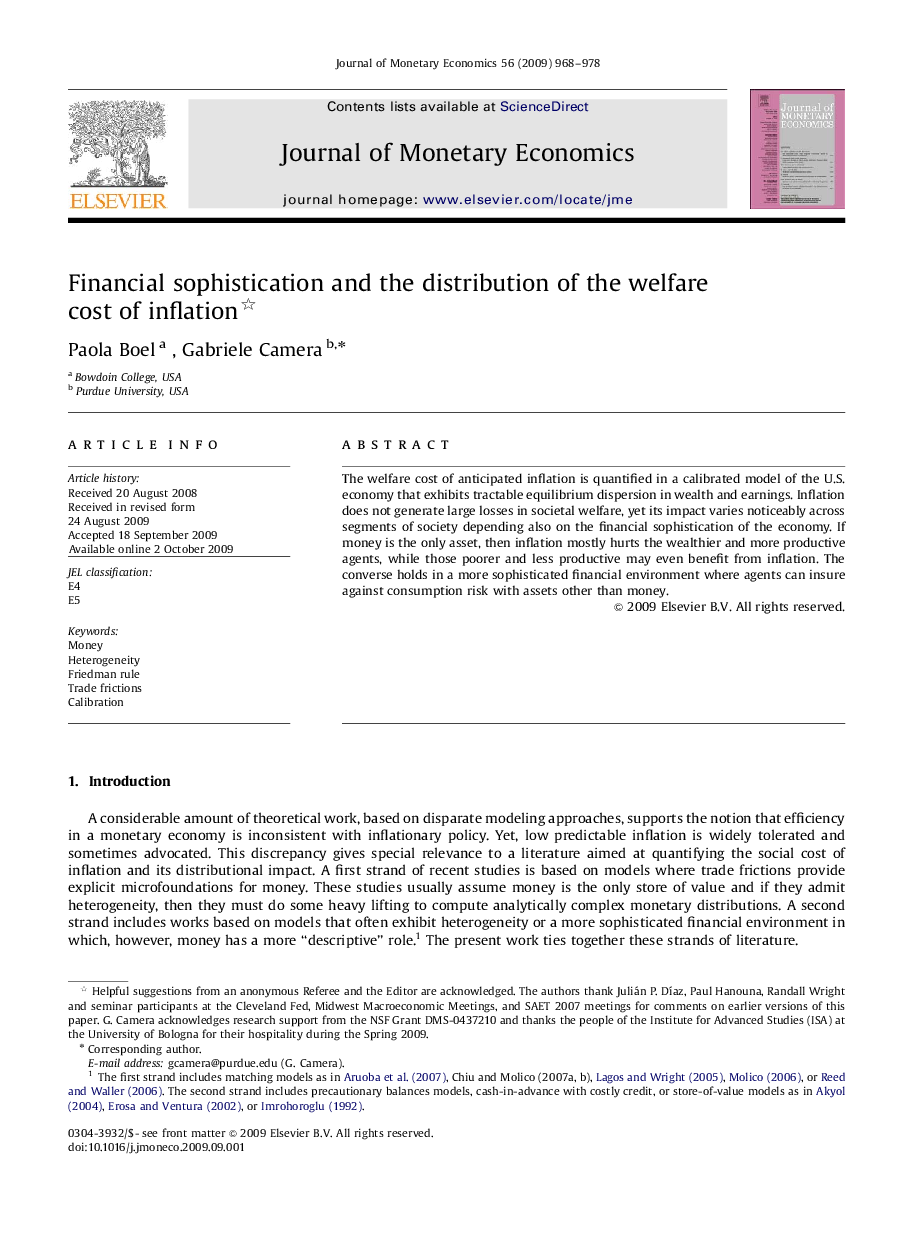| Article ID | Journal | Published Year | Pages | File Type |
|---|---|---|---|---|
| 967531 | Journal of Monetary Economics | 2009 | 11 Pages |
Abstract
The welfare cost of anticipated inflation is quantified in a calibrated model of the U.S. economy that exhibits tractable equilibrium dispersion in wealth and earnings. Inflation does not generate large losses in societal welfare, yet its impact varies noticeably across segments of society depending also on the financial sophistication of the economy. If money is the only asset, then inflation mostly hurts the wealthier and more productive agents, while those poorer and less productive may even benefit from inflation. The converse holds in a more sophisticated financial environment where agents can insure against consumption risk with assets other than money.
Related Topics
Social Sciences and Humanities
Economics, Econometrics and Finance
Economics and Econometrics
Authors
Paola Boel, Gabriele Camera,
